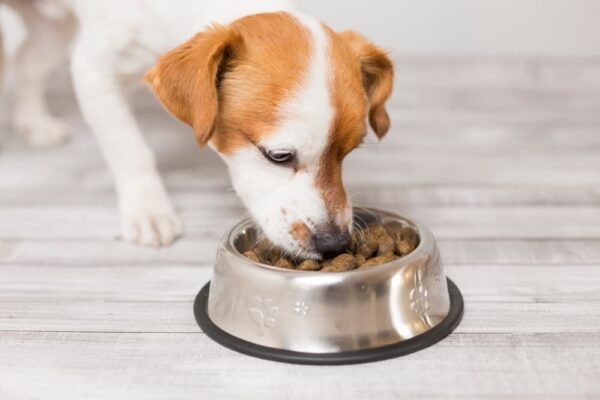
It is critical for your dog’s general health and well-being to feed it a suitable quantity of well-balanced food. To understand how and what to feed your dog, you must first understand the nutritional needs of dogs and how these needs have evolved via biological evolution.
Human food for dogs is virtually always a source of concern for dog owners. Is it safe to share with dogs or not? We understand how tough it is to ignore those expectant puppy eyes while you munch your chocolate. Is a little treat so bad for your dog? What kinds of human meals may be used as dog food? Just because food is beneficial for humans doesn’t guarantee it’s also suitable for dogs. Dog meals must provide your dog with all the nutrition required to live a long and healthy life.
Your dog needs a protein-rich, vegetable-based diet with a good balance of fats and carbs, depending on his size and activity level. Coconuts are high in dietary fibre, vitamins, minerals, and antioxidants, making them excellent dog food. Coconut water is also an excellent source of hydration and electrolyte replacement for your dog.
To take care of our pets, we make sure they are well-fed, trained well, have space to run and stay fit, and, of course, that they receive plenty of love and attention. So why don’t you add them to the circle of protection that pet insurance provides? Dog insurance can help in adding some peace of mind.
- Peanut butter contains heart-healthy fats, along with vitamin B and vitamin E.
- Carrots are high in vitamin A and beta-carotene. Low in calories and high in fibre and vitamins, crunching on carrots is suitable for dogs.
- Yoghurts are high in protein and calcium, plain yoghurt doesn’t contain added sugar or artificial sweeteners. It is an ideal treat for dogs, especially if your puppy suffers from digestion problems.
- Bananas aid in protein metabolization and modulates blood cell activity, allowing the blood to carry more oxygen to the brain and muscle.
- Oatmeal is a rich source of fibre and is suitable for dogs with digestive irregularities. It is also ideal for dogs with wheat allergies.
- Broccoli is a vitamin-rich vegetable that might be an excellent addition to your dog’s diet.
- Pumpkin is high in fibre and vitamin A, and it’s simple to digest.
- Fresh green beans with no added salt are nutrient-dense and low in calories, and they’re high in iron and vitamins, making them ideal for your dog’s diet.
- Brown rice, which is high in protein, and white rice, which is simpler to digest, provide a balanced diet for young and senior dogs.
- Scrambled eggs are high in protein and readily digested, making them a nutritious dog meal.
- Pineapples are high in calcium and potassium and make a tasty treat for your pets.
- Apples are high in vitamins and may also be used to freshen your dog’s breath.
Dogs’ dental structure and digestive system have evolved to an omnivorous diet because of their nutritional requirements. This indicates that, in most cases, dogs may achieve their dietary needs by consuming a mix of plant and animal foods. The quality and digestibility of these vital components of the dog’s food are more important than the supply of proteins and fats. If dogs are provided with a well-balanced vegetarian diet, they can flourish. On the other hand, an all-meat diet would be imbalanced and would not cover all of a dog’s nutritional needs. A balanced diet can be against utilising your pet insurance too. But dog insurance is essential.
